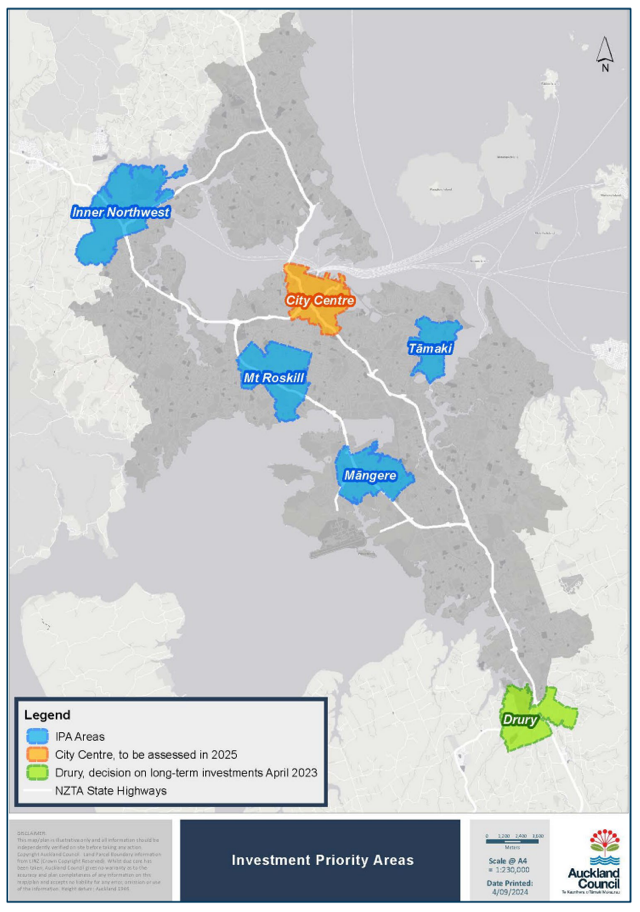New Zealand's local councils have landed themselves in some hot water lately for their large budget deficits and are now looking ahead as to how they intend to fund upcoming projects as well as required upgrades to existing infrastructure. Auckland Council in response have put forward a funding proposal which will see costs for developers skyrocket - some by 289%!
Development Contributions (DCs) are a fee charged by the council to developers to recover an appropriate share of the cost of the investment in infrastructure for new developments. The intention behind this is that the cost of new infrastructure is fairly shared between developers and ratepayers, based on who causes the need for and who benefits from the investment.
The rate at which development contributions are charged can vary by location depending on the infrastructure required and upcoming council planned investment/projects. It also varies by the size and type of the proposed development as Development Contributions are calculated by the number of increased Household Unit Equivalents (HUEs) (essentially the number of additional residential dwellings being added to the site). Typically development contributions are charged when new titles are issued for a development, although, some councils (such as Tauranga) have bought this forward to align with issuance of the resource consent.
Auckland Council has undergone a review of their current development contribution charging process and put forward a proposal containing changes they intend to implement from February 2025. This includes changing from the current 10 year charging model (estimating the projects and upgrades that will be required over the next 10 years to support population growth and proportioning these costs accordingly) to a 30 year charging model for some areas - pushing up the estimated DC costs up significantly.
These areas include:
- The Inner North-West increasing from $25,167 to $98,000 per HUE (289% increase)
- Māngere increasing from $18,123 to $29,000 per HUE (60% increase)
- Mt Roskill increasing from $20,406 to $52,000 per HUE (155% increase)
- Tāmaki from $31,157 to $119,000 per HUE (282% increase)

Overall the Auckland wide average for DC charges are proposed to increase from $21,000 to $50,000 per HUE (138% increase).
To help put that into context if you were removing an existing house and replacing it with a 10x townhouse development in the North-West area your total Development Contribution expense will increase from $226,503 to $882,000 (you only pay for new titles / HUE’s – i.e. 9 new homes) under the proposed changes. A rather steep jump!
Don’t forget also, on top of the development contribution costs you’ve still got your land cost, consultant and consenting costs, civil works, drainage/service connections, build costs, finance costs etc to pay too…hopefully you’ve still got a feasible project! Plainly, a number of projects will become unfeasible to proceed with.
At this stage it’s hard to say exactly what the flow on effects these development contribution changes will cause, some say increased development cost = higher house prices as the developers will just pass the cost on to the purchaser, the council however is of the opinion it won’t have an effect on house prices and will instead bring land prices down. We believe that it will simply make some projects non-feasible and drastically reduce the amount of development in certain regions. Land prices in theory should fall, however, we anticipate these won’t change drastically as people will just refrain from trading these properties for development.
In this blog we have outlined the proposed changes for the Auckland Council but it’s important to note this could well affect other councils going forward also as aging infrastructure and council balance sheet issues become more prevalent across the country. Hamilton City Council recently went through a review of their development contribution policy which had some large increases proposed and eyes are now on Wellington questioning if they will follow suit with Auckland’s proposal in a bid to finally address the much needed water infrastructure upgrades throughout the capital.
There certainly seems to be a spotlight on infrastructure constraints by the Auckland council recently, not only in the form of these eye watering proposed development contribution increases, but also with local council and water provider networks actively declining development consents and new connection requests due to internally known capacity restraints with some pump stations only recently publicly notified. Read more on our recent blog here – Council & Watercare are Cancelling Developments in Auckland.
Ready to make a plan for your project? Reach out to the team.
Please read our Disclaimer Statement for more information.
